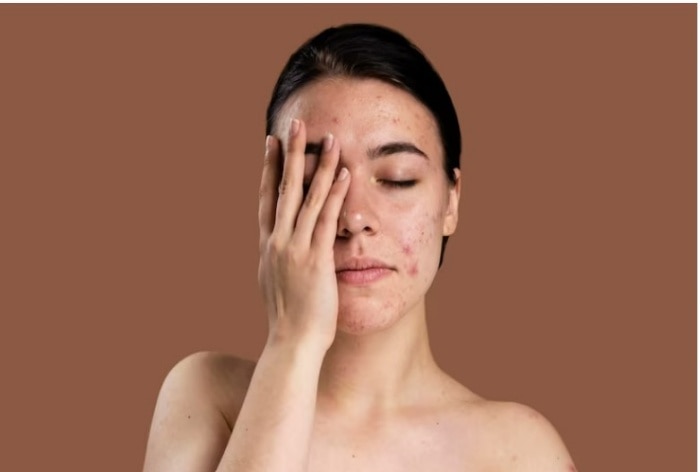Psoriasis is a common but lesser-known skin condition that can be painful but incurable.
Psoriasis: Skin problems are usually on the outside. It becomes a thing in the public eye. Something, very conspicuous, very visible. Vitiligo, skin rashes and some marks are some of the skin problems that people face. But have you heard of psoriasis? It is a lesser known skin condition, a chronic but quite common autoimmune disease. Coming to what is psoriasis? It is a rapid accumulation of skin cells. It causes inflammation and redness and produces scaly patches on the skin. It can be painful and is as yet incurable. It is also associated with some other health conditions and could also interfere with sleep cycles, concentration power, etc.
According to the MayoClinic, the condition tends to go through cycles, flaring up for a few weeks or months and then subsiding for a while. Common triggers in people with a genetic predisposition to psoriasis include infections, cuts or burns, and certain medications.
Symptoms of psoriasis:
- Irregular red rashes
- Rashes that vary in color, tending to be shades of purple with gray scales on brown or black skin and pink or red with silver scales on white skin
- scale spots
- painful and swollen joints
- Dry, cracked skin that may bleed
- itching
- Burning sensation or pain
- Cyclic eruptions that flare up for a few weeks or months and then disappear
Types of psoriasis:
Usually our skin has its own cycle, it takes its own time to build, rebuild and rejuvenate. Skin cells grow, slowly form on the surface, and eventually the old skin falls off. But when skin production is accelerated, the skin cells do not fall off and patches form.
- Plaque psoriasis: The most common type of psoriasis, plaque psoriasis, causes dry, itchy, raised patches (plaques) on the skin covered with scales. There may be few or many. They usually appear on elbows, knees, lower back and scalp. The patches vary in color, depending on the color of the skin.
- Gutate psoriasis: Guttate psoriasis mainly affects young adults and children. It is usually triggered by a bacterial infection, such as strep throat. It is marked by small, scaly, drop-shaped spots on the trunk, arms, or legs.
- Inverse psoriasis: Inverse psoriasis mainly affects the skin folds of the groin, buttocks, and breasts. It causes soft patches of inflamed skin that are made worse by rubbing and sweating. Fungal infections can trigger this type of psoriasis.
- Pustular psoriasis: Pustular psoriasis, a rare type, causes clearly defined pus-filled blisters. It can occur in widespread patches or small areas on the palms of the hands or soles of the feet.
How to prevent psoriasis?
- Keep hydrated
- Exercise regularly for at least 30 minutes in a day
- Incorporate a healthy diet
- Have foods rich in fiber
- restrict alcohol consumption
- Give up smoking
- Add yoga to your routine too
$(document).ready(function(){
$(‘#commentbtn’).on(“click”,function(){
(function(d, s, id) {
var js, fjs = d.getElementsByTagName(s)[0];
if (d.getElementById(id)) return;
js = d.createElement(s); js.id = id;
js.src = “//connect.facebook.net/en_US/all.js#xfbml=1&appId=178196885542208”;
fjs.parentNode.insertBefore(js, fjs);
}(document, ‘script’, ‘facebook-jssdk’));
$(“.cmntbox”).toggle();
});
});
